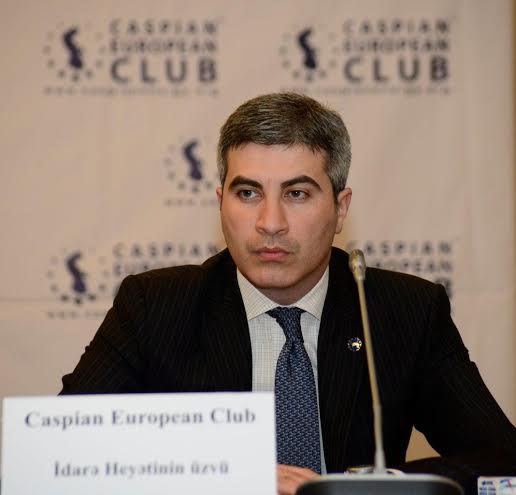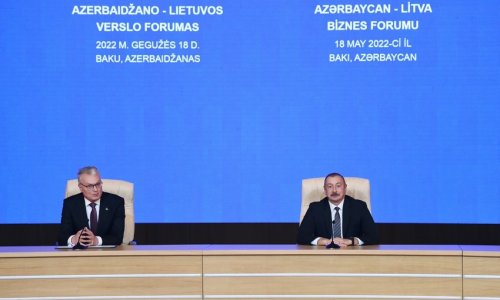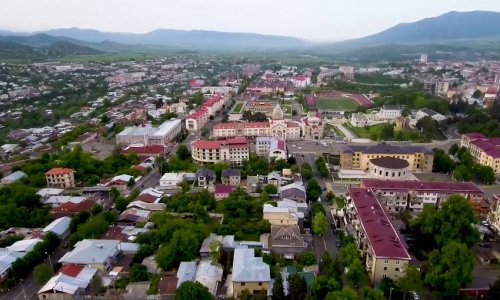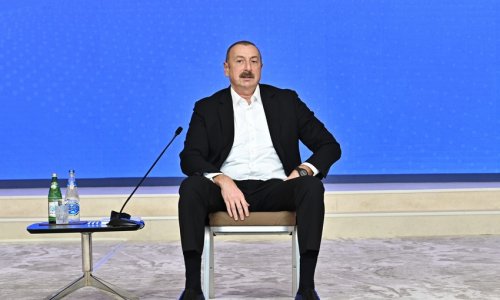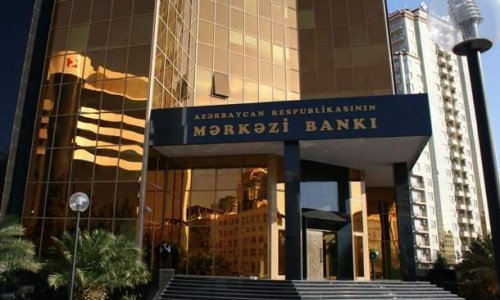Сaspian Energy
(CE): Could you please tell in detail about the proposals the Club submitted to
His Excellency President of the Republic of Azerbaijan, Chairman of the Caspian
European Club Ilham Aliyev? Which sectors of economy did the proposals cover?
Mustafa Abbasbayli,
Member of the Board and Head of the Legal Committee of the Caspian European Club:
As you know, in February our expert committee under the Caspian European
Club (Caspian Business Club) prepared a few proposals on several areas, and as
you already pointed out they have been submitted to the President. Our proposals
consist mainly of 3 parts. In particular, these include customs, taxation and
investment climate in Azerbaijan.
I would like to note that all members of the Caspian European Club
(Caspian Business Club) took part in the work on these proposals. Each member
of the club, each side had certain proposals, and we finally grouped them and submitted
to the Head of State in a uniform manner in the form of proposals.
CE: Which
items do the customs-related proposals include?
Mustafa Abbasbayli:
As far as the customs segment
is concerned, I would like to specify several key moments of this direction. The
first one is that we would like to offer tariffication. The proposals include
the item on tariffication of customs charges, which suggests that the Customs
Committee introduces a differentiated tariffication on imported products, in
particular those produced in Azerbaijan. That means distinguishing between Azerbaijan-made
products and those not produced in Azerbaijan. Therefore, it is necessary to
raise tariff rates for imported products that are already produced in
Azerbaijan and respectively keep the same or set lower rates for those not manufactured
in Azerbaijan. In addition, we offer to update tariffication data every year.
As you know, each year brings new service sectors, so we offer to update the tariffication-related
information every year.
Another item included
in our customs-related proposals is to increase tariff rates for excise
products, in particular, for alcohol, cigarettes, etc. Also, we would like to group
all tariff rates in the sector of IT technologies. Currently there are several
different tariff rates for IT technologies in Azerbaijan, and they create
certain difficulties for importers. Therefore, one of the proposals is to group
them according to one rate to avoid an unfair approach to different importers.
And the last but important point on customs is the possibility to reduce or
even completely eliminate customs charges on feedstock since, as we know, it is
the basis of domestic production.
CE: What could
you say about the proposals on fiscal policy?
Mustafa Abbasbayli: With regard to the tax system, we offer a few items. The
first one is to set tariffs on a value added tax. It is common knowledge that the
developed countries have several categories of value added tax in place. In our
country it makes 0% or 18%. Again, the developed economies use in practice several
categories with rates up to 21%. Rates are much lower for first-necessity
products. We offer the similar form of taxation in the part of VAT.
Also, in our opinion one of the proposals in the field of taxation is to
introduce the third category to taxation. The fact is that there are two main tax
regimes in place in Azerbaijan now: a simplified kind of tax and a normal kind
of tax. The second one envisages a tax rate for company profit at 20%. We
propose to introduce the third clause on taxes for companies with the annual
turnover not exceeding 50,000 manats. Thus, from the moment of registration
through the first year of operation a company with a turnover of up to 50,000
manats pays no taxes. When a turnover reaches 50,000 manats or after one year
of operation a company can shift to a simplified system, which envisages charging
of only 4% as tax from an annual turnover.
CE: Will this
clause also cover a decrease in a tax base for individuals?
Mustafa Abbasbayli: One of the
points we envisaged in the tax system is also a simplification or reduction of profit
taxes for individuals. Currently it together with social insurance rates ranges
from 39% to 50%. If a salary of an individual is up to 2,500 manats, he pays
39%, with a salary over 2,500 manats an individual shall pay 50%. A business
entity pays income tax at a rate of 20%, so according to this scheme, rates are
more favourable for companies rather than for individuals. Unfortunately, we
see the cases when companies start to indicate lower amounts of salaries than
the applicable level. We propose to reduce taxes on salaries of individuals to
align them with the level of a tax rate for company profits. Again, here we
have taken into account the international experience. For example, in Georgia,
a tax rate on salaries of individuals is 20%, and income tax together with
dividends is 20% too. Accordingly, there is no need for companies to lower actual
amounts of salaries of their employees since in both cases the amount of tax is
the same.
CE: Finally,
what does the third item of the proposals include?
Mustafa Abbasbayli: The third point
of our proposals includes the proposals to improve the investment climate in
Azerbaijan. As is known, in recent years, particularly since late 2015, very
important steps have been taken in this area. We, in turn, would also like to
contribute to this process by submitting our proposals.
What we would
like to suggest is to completely abolish the tax on reinvestment. That is, if a
business entity makes a profit and reinvests it, to be more exact if money
remains in a company or is invested in another sphere, this may be the case of
not charging taxes. It will help to boost investment in the real sector of
economy.
Moreover, here
we also indicated the provision on visas, since some difficulties are faced in
obtaining business visas for entering Azerbaijan. So, one of the proposals is
to simplify the visa processes, not only for business visas but also for
tourist visas, taking into account the importance of the tourism sector. And to
date, a lot of work is conducted in this direction since it will promote an
increase in the investment attractiveness of our country.
CE: How would
you evaluate the current economic situation in the country and in the region in
general?
Mustafa Abbasbayli: As is known, the
drop in oil prices in the global market has affected the situation in the
country. Azerbaijan in particular was affected in two ways. The first is the
decrease in government revenues from oil sales. So, accordingly, the government
was forced to optimise spending on some projects, etc. As a result, economy
narrowed. Secondly, the foreign trade balance of Azerbaijan was closed with
minus and the country was compelled to devalue the local currency. This
influenced the inflation. Prices for many products shot up, also negatively
affecting the economy. But, as I already said, finally the government took
serious measures on institutional, financial and economic reforms, improvement
of the investment climate that minimized the effects caused by the global
processes. In my option, the situation has stabilized now, so we do not expect
another devaluation of the Azerbaijan manat.
CE: Which
area can drive the development of the non-oil sector of economy?
Mustafa Abbasbayli: At present, we see a big potential in the sector
of agriculture and tourism. We find both of these directions very promising and
think the government is making maximum efforts in this area. The example of
this is the new decree of the President, which envisages a creation of a new
company to deal with procurement of agricultural products. We believe it will strongly influence the development of agriculture in Azerbaijan.
Along with
agriculture and tourism, the transport sector is also promising. Azerbaijan is currently
turning into a transit zone for the neighbouring countries. The favourable geographical
location enables Azerbaijan to develop into a regional transport hub. This, in
turn, will increase budget receipts and create more opportunities for the
development of other sectors.
www.ann.az

